I've got this code:
Imports Excel = Microsoft.Office.Interop.Excel
Public Class FormExcelTest_VB
Private Sub ButtonCreateExcelFile_Click( sender As Object, e As EventArgs) Handles ButtonCreateExcelFile.Click
Dim xlApp As New Excel.Application
Dim xlWorkBook As Excel.Workbook
Dim xlWorkSheet As Excel.Worksheet
. . .
I got it from here.
It doesn't compile, though; I get:
Type 'Excel.Application' is not defined.
Type 'Excel.Workbook' is not defined.
Type 'Excel.Worksheet' is not defined.
Being unfamiliar with VB[.NET], I thought to myself, "Self, you probably forgot to add a required reference." But then I saw that there is no "References" folder in Solution Explorer for the project (coming from the land of C#, that seems awfully strange to me).
The "helpful" msgs I get when hovering over the rejected code are:
The first one doesn't seem the likely remedy, and the following ones even less so. How am I supposed to know how to resolve (no pun intended) these undefined types?
